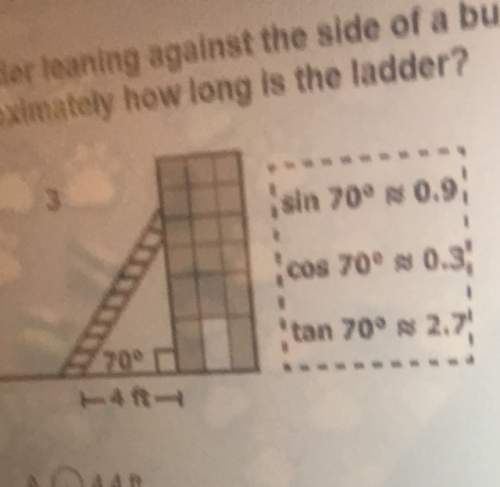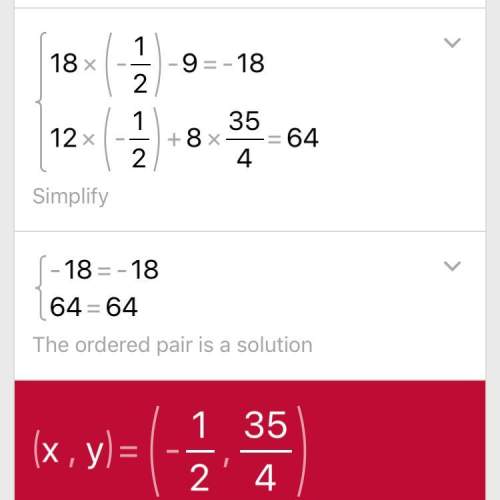
Mathematics, 01.04.2021 19:20 pillgiing
Some perfect squares (such as 121) have a digit sum $(1 + 2 + 1 = 4)$ that is equal to the square of the digit sum of their square root $(\sqrt{121}=11$, and $(1 + 1)^2 = 4)$. What is the smallest perfect square greater than 100 that does not have this property?

Answers: 1


Other questions on the subject: Mathematics


Mathematics, 22.06.2019 02:00, nathanstern21
Which polynomial correctly combines the like terms and expresses the given polynomial in standard form? 8mn5 – 2m6 + 5m2n4 – m3n3 + n6 – 4m6 + 9m2n4 – mn5 – 4m3n3 n6 + 7mn5 + 14m2n4 – 5m3n3 – 6m6 –2m6 – 5m3n3 + 14m2n4 + 7mn5 + n6 14m2n4 + 7mn5 – 6m6 – 5m3n3 + n6 n6 – 6m6 + 7mn5 + 14m2n4 – 5m3n3 show work
Answers: 3

Mathematics, 22.06.2019 03:00, jonquil201
Benjamin believes that ¼ % is equivalent to 25%. is he correct? why or why not?
Answers: 1

Mathematics, 22.06.2019 06:30, andreimru123123
1.5x + 0.2y = 2.68 1.6x +0.3y = 2.98 which statement describes the graph of the system of equations
Answers: 3
You know the right answer?
Some perfect squares (such as 121) have a digit sum $(1 + 2 + 1 = 4)$ that is equal to the square of...
Questions in other subjects:




English, 29.07.2019 18:00





English, 29.07.2019 18:00





